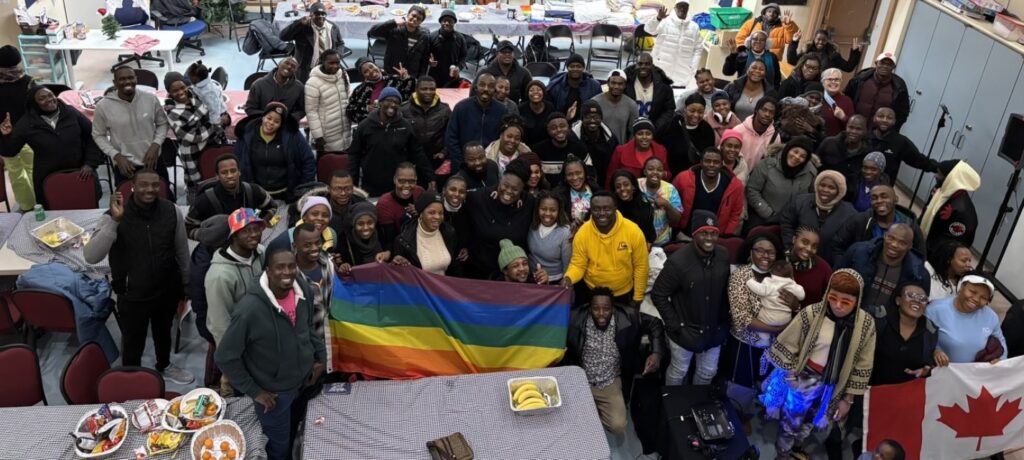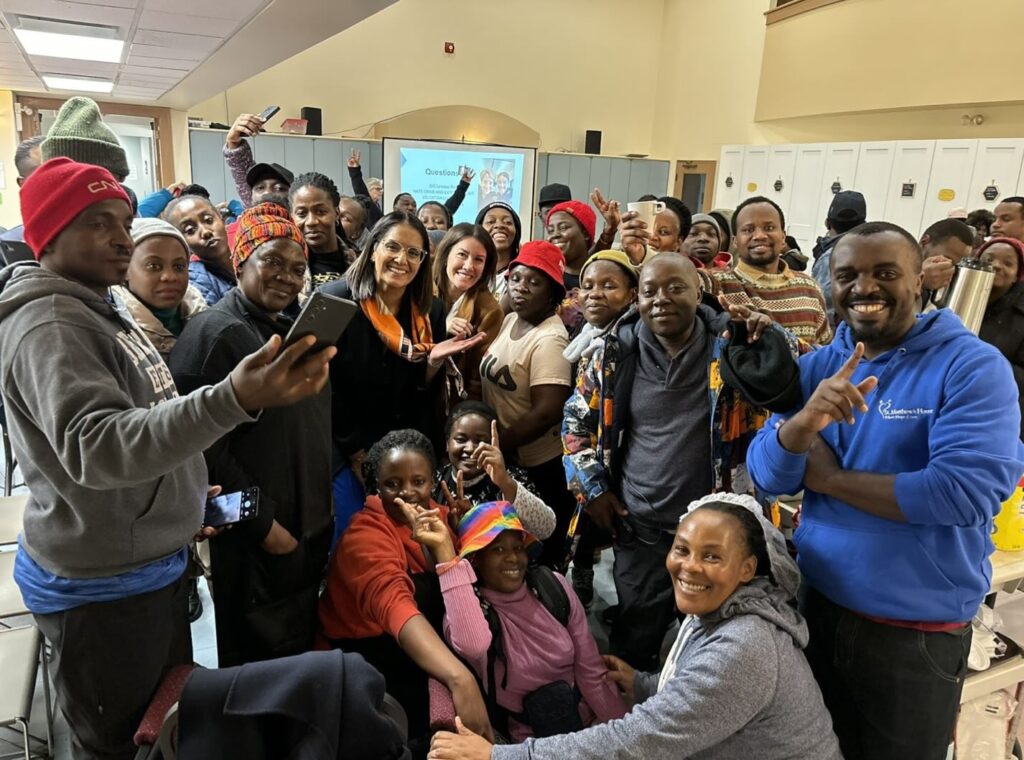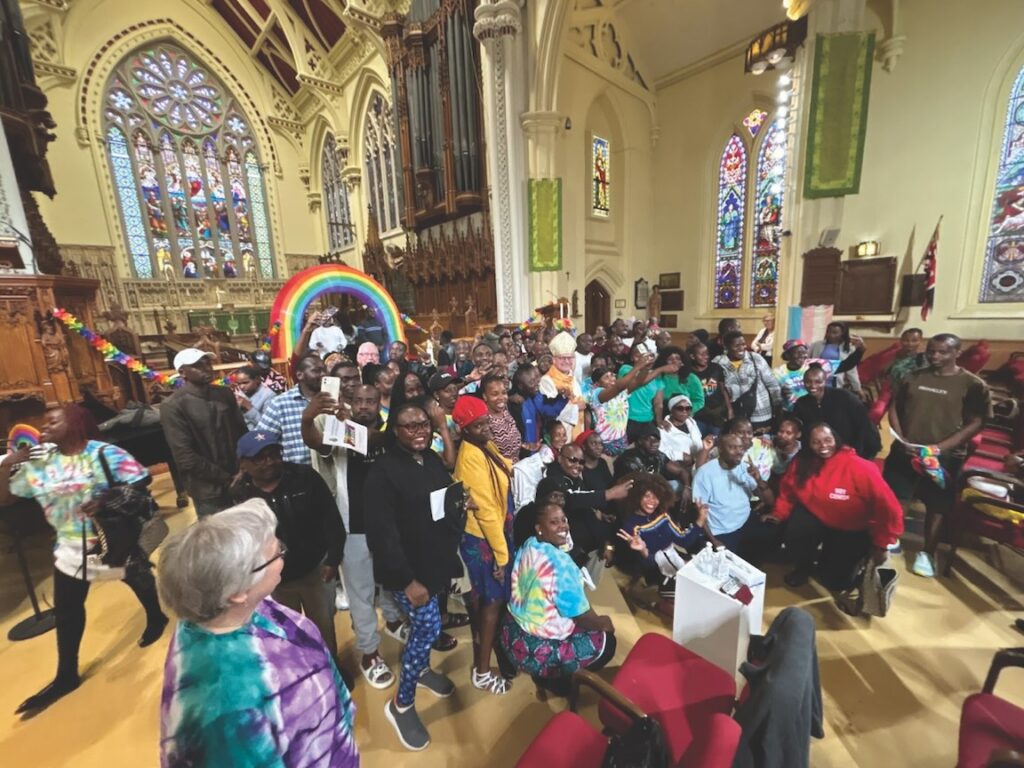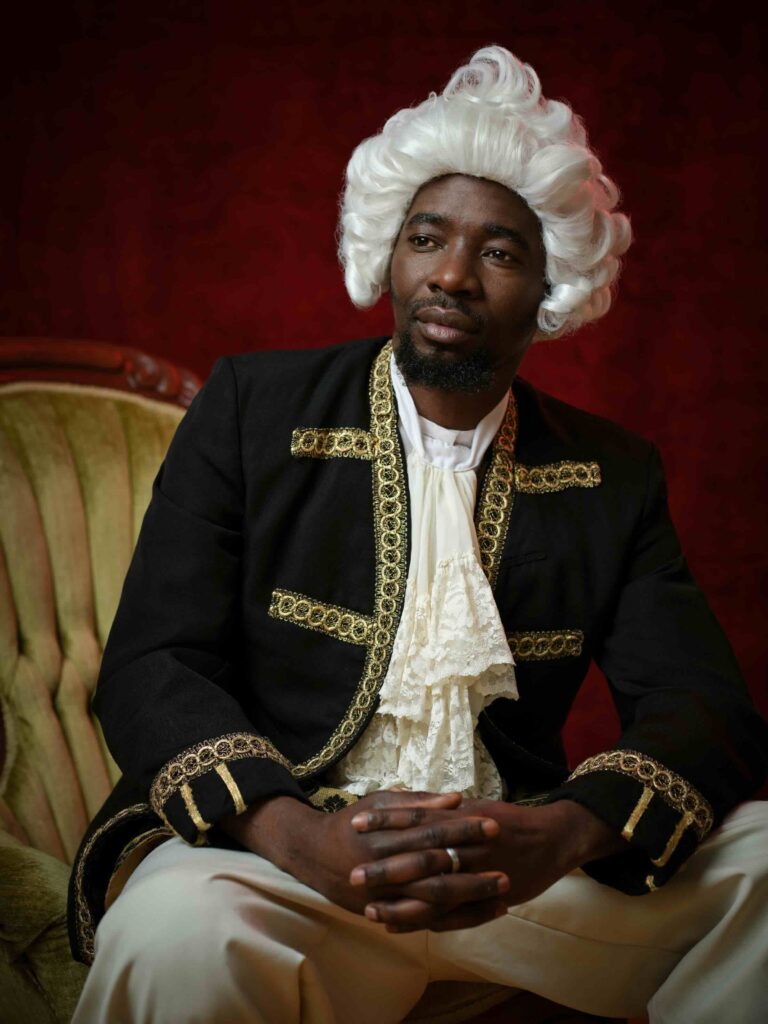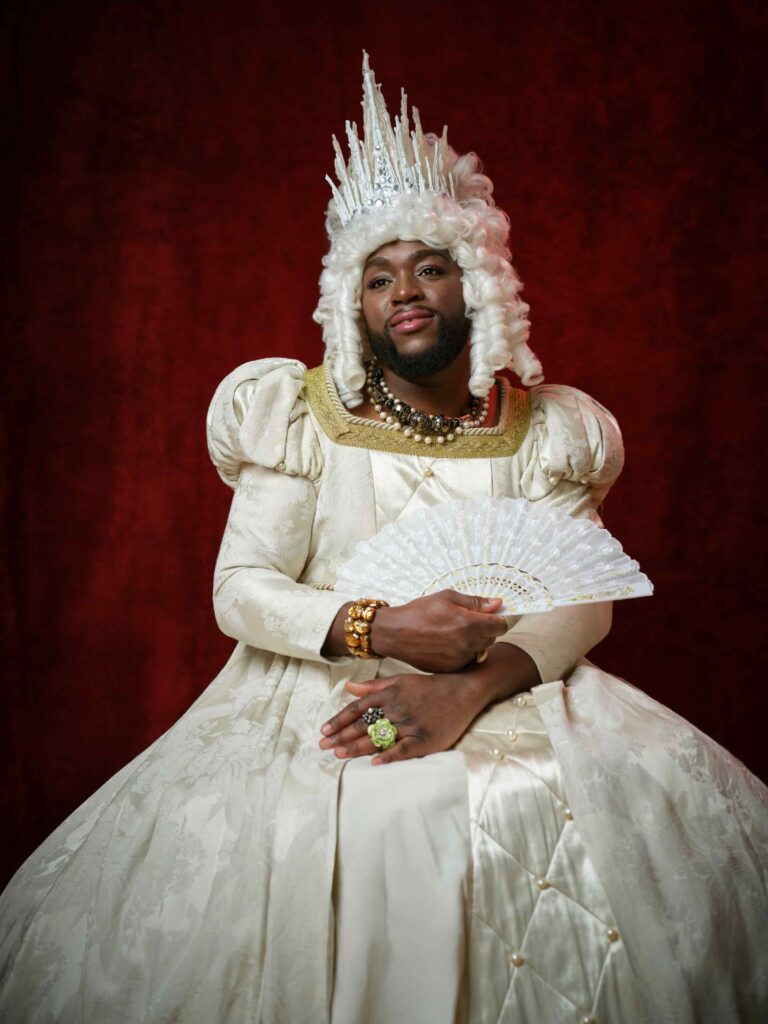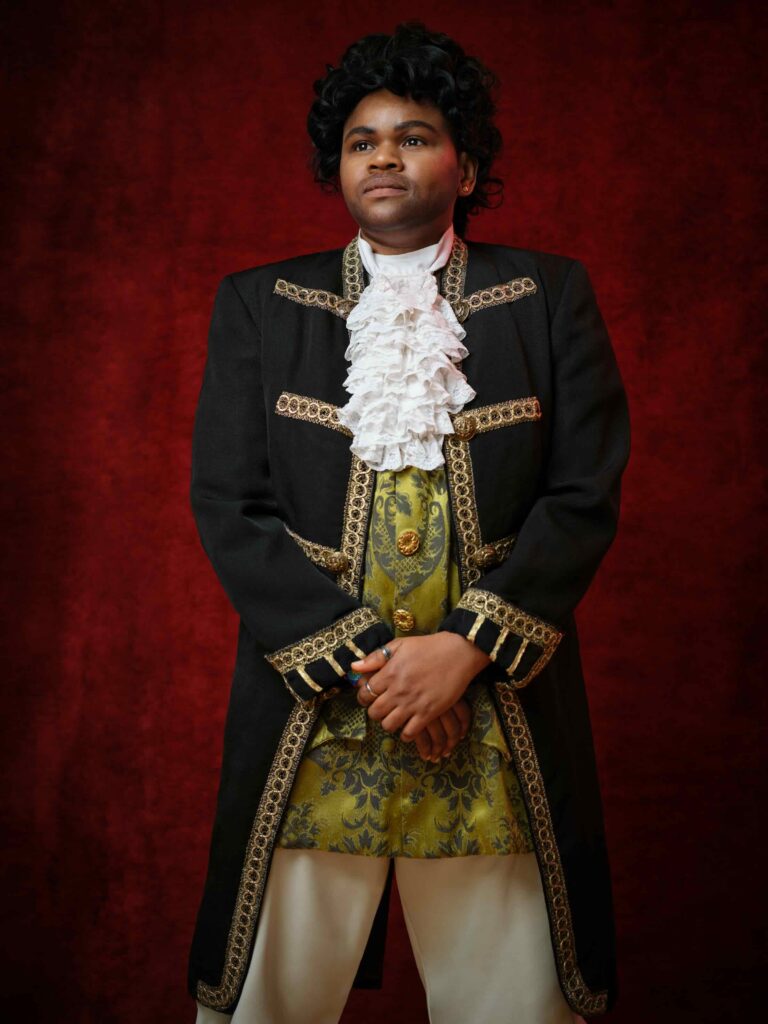PRIDE: A royal legacy for Rainbow Kings and Queens
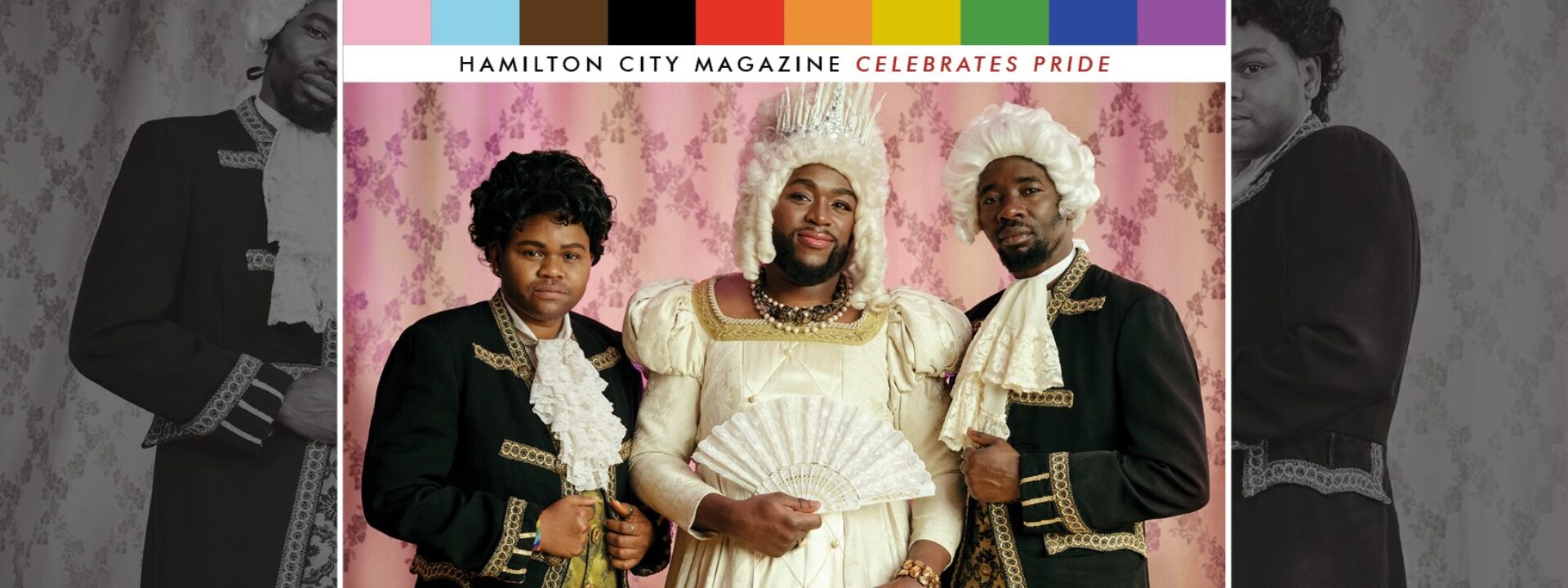
More than 350 LGBTQ+ asylum-seekers from eight African countries have settled in Hamilton for a life of safety, acceptance and peace and are building of their own community.
Herbert Ddiba can’t quite recall how he came up with the name Rainbow Kings and Queens. He knew he wanted to coin something quickly to begin connecting with LGBTQ+ asylum-seekers from his native Uganda and neighbouring Kenya. Like himself, they had run for their lives, arriving in droves to Hamilton beginning in the fall of 2023.
Since its inception in February 2024, the Rainbow Kings and Queens (RKQs) has been a place of connection, either virtually or in person, for over 350 people in Hamilton, now from eight African countries, who fled their homelands after suffering unspeakable brutalities because of their sexual orientation.
At the anniversary of the first RKQs meeting this past March, the 133 attendees identified their home countries as Uganda (63), Kenya (30), Nigeria (21), Ghana (13), Tanzania (2), Sierra Leone (2), Rwanda (1), and Cameroon (1).
It all started with a U-Haul
The seeds for the group were planted through a furniture delivery program assisting newcomers out of St. James Anglican Church in Dundas. Lynn Dykeman coordinates the program, one in which the volunteer movers have either been recipients of donated furniture in the past or will soon be as they leave a shelter. In January 2023, I heard they needed a volunteer truck driver and signed up.
One day, while driving down Sulphur Springs Road to pick up a donation, Simon Mburu, a young Kenyan man, came out to me as gay. A few days later, it was Herbert, a Ugandan to whom we had delivered some furniture. He was sporting a toque with a Pride flag emblem.
“Nice hat,” I said as we shook hands. He smiled widely. A few days later I had a text from Herbert.
“I’m the one with the nice hat,” he wrote by way of introduction. He needed assistance with his refugee claim, which revolved around his identity as gay and the violence he faced when he was exposed publicly. Lynn and I met him for a coffee.
Noting the trend of two gay Africans coming out in one week, I asked him if any of the other furniture recipients might also be LGBTQ+.
“Oh, so many, Pike,” Herbert exclaimed.
I offered to find a spot for them to gather. That afternoon, Herbert created the Rainbow Kings and Queens’ WhatsApp group. By nightfall, there were 12 members. Three weeks later, nearly 50 people squeezed into a small church meeting room. The growth continued in leaps and bounds.
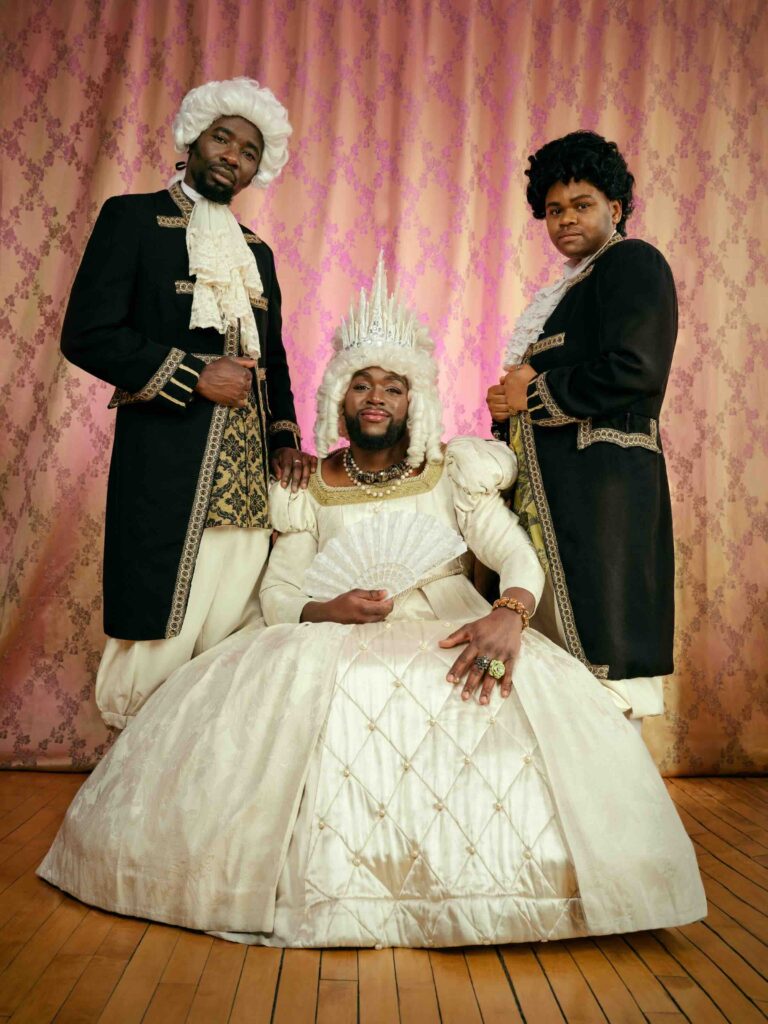
Monthly meetings transform
The fear was palpable in the initial silence of that first meeting. Imagine running for your life because you are gay, lesbian, or bisexual, and now you are invited to gather and socialize in freedom and peace precisely because of that identity. After experiencing surveillance, threats, branding, rapes, and countless kinds of torture, here they sit wondering what lies ahead, and just who are these strangers welcoming them. The leap of faith is unfathomable.
Fast forward to March 19 this year and the first anniversary party. The room is bursting with bodies, laughter, music, and the smell of good food emanating from the kitchen. The space where they gather now at Christ’s Church Cathedral on James Street North, is four times as large as their first meeting space in the same building, but still not large enough to hold everyone comfortably.
St. Matthew’s House became involved from the start, purchasing food for the RKQs so over 100 members can enjoy a monthly meal that includes familiar dishes. There is almost always matooke for the Ugandans, jollof rice for Nigerians, and ugali for the Kenyans. SMH also covers the cost of Safe Food Handling courses for those who want to participate in the cooking and gain employable skills.
The group hosts guest speakers each month including experts on navigating the primary healthcare system, health and safety in the workplace, refugee law, and pursuing permanent residency.
Still to come this year is Sara Sanelli, a lawyer specializing in LGBTQ+ refugee cases, Kathleen Wynne, 25th premier of Ontario, and the first lesbian premier in Canada; and Michelle Douglas, a human rights activist who launched a landmark legal challenge against the Canadian military's discriminatory policies against LGBTQ+ service members.
SEE A BEHIND-THE-SCENES VIDEO OF OUR ROYAL COVER SHOOT!
Of course, Pride
Getting their pictures taken with the Progress Pride flag at the end of each meeting is always a blast, so when Pride month was approaching last year, the excitement level rose to fever pitch at the potential of the RKQs attending their first Pride festival together.
Over two dozen Rainbow Kings and Queens boarded a GO train to party at Toronto’s Dyke March and Pride Parade. Some wore their tie-dyed shirts with the RKQ logo; all marched and danced with joy and defiance. Later that summer at Hamilton Pride, nearly 75 attended. This year, the group hopes to host their own table to connect to each other and the larger 2SLGBTQIA+ community.
Relationship with police – it’s complicated
Each asylum seeker must write their narrative, a document detailing the history of their lives and the most horrific details of what happened when their families or communities found out they were “cursed with homosexuality,” as it is prominently considered back home. Typically, the police were involved and not in a good way, with wrongful imprisonment, brutal beatings, and bribes.
So, once again, imagine the trust it takes to realize the police here are in place to protect you. In fact, Hamilton Police Services have been a strong supporter of the RKQs, with Lyndsay Scott, the 2SLGBTQIA+ liaison officer offering workshops on hate crimes, bringing mashed potatoes to the Christmas party, and arranging a free BBQ for the group with her colleagues in front of central station to kick off Pride. Sergeant Rebecca Moran, HPS’s first 2SLGBTQIA+ community liaison officer, and her wife, Michelle Douglas, have been ardent advocates as well.
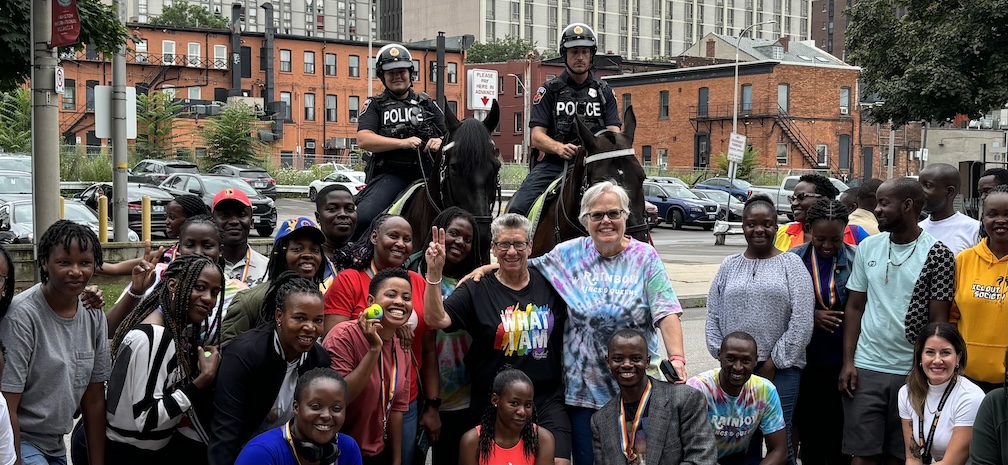
Immigration support
Those narratives have been shared with Lynn and I, as we are regularly asked to provide letters of support for refugee protection claims. We build relationships with the members of the group and are able to write the letters with confidence. Each time someone gets a positive outcome from their hearing it is announced in the WhatsApp group and the crowd goes wild.
It is a decision that is always received with great joy. At the same time, it is a decision that cements the finality of their situation. They won’t be going home. Recheal Twahira sinitially had mixed feelings when her hearing was over.
“I was nervous because my lawyer had warned me it could take anywhere from three to six hours. I was completely shocked when it only took 25 minutes. I remember lying on my bed, my mind racing. ‘This is it. There’s no turning back now. I’m never going home. I’m here all alone. What if I can’t make rent? I can’t even call my mom for help.”
After the initial shock, Recheal was able to see something else, too.
“In the midst of it all, I’m so grateful to have found a community with the Rainbow Kings and Queens, who make living here feel a little less scary, even when it’s hard inside.”
A rose by any other name…
It seems the RKQs are building quite a name for themselves. When Herbert had his hearing, the judge asked about the group. He started to explain what it was about. Then the judge reached for something on her desk and picked up a copy of the Niagara Anglican newspaper, which featured a story about the RKQs.
Herbert says, “I swear to God it was the best part for me during the hearing. The moment she asked about Rainbow Kings and Queens, I just knew I have won the case.”
He did.
Herbert may not recall how he came up with the name, but the Rainbow Kings and Queens are making a name for themselves as they push restart on their lives in their new home of Hamilton.
My story of survival
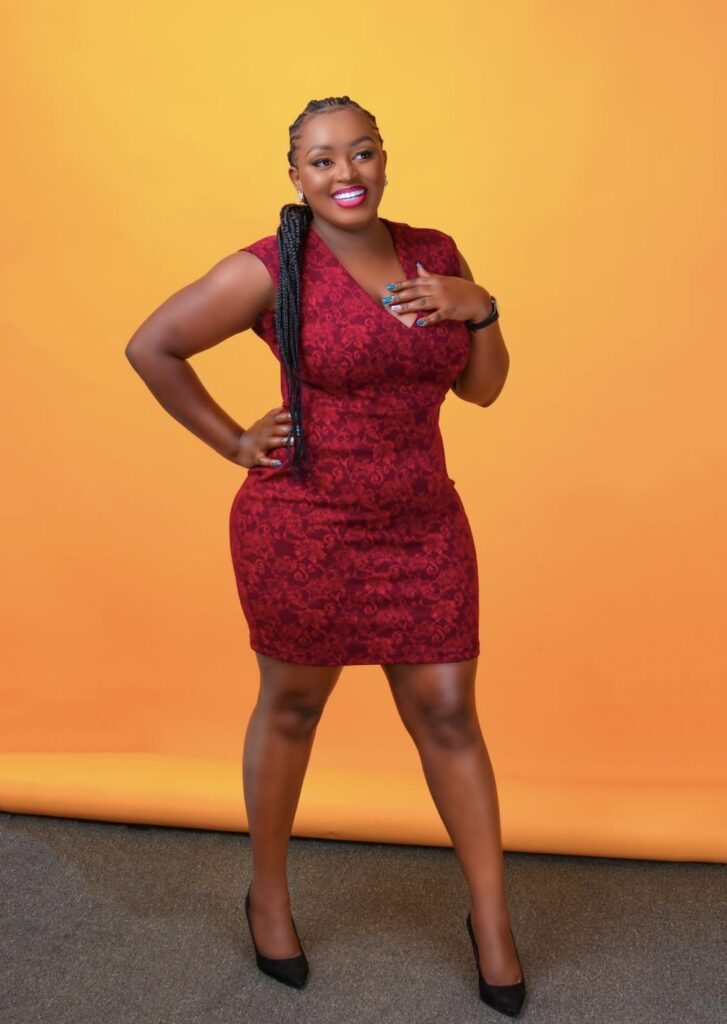
My name is Margaret Ndungu, and I am a proud lesbian woman originally from Kenya. Leaving my home wasn’t just about seeking freedom, it was about survival.
Before I came to Canada, life was incredibly painful and dangerous.
Being open about my sexual orientation meant constant judgment, rejection, and isolation. People in my community distanced themselves from me as if I were a disease. I heard the whisper and plans to beat me,
threats disguised as “warnings.” And then came the most heartbreaking moment: having to leave my partner behind. Saying goodbye to the person I loved most, not knowing if I’d ever see her again, shattered me.
Worse still, I experienced one of the most traumatic violations a person can endure. I was raped because
I am a lesbian. It was meant to “correct” me, to break me. But even through that pain, I held on to the belief
that I deserved better. I knew I had to get out. I longed \for a place where I could live freely, love without fear, |and just be myself.
That’s when I made the decision to come to Canada.
When I landed in Guelph, I stayed at a host house. It was a new beginning, but also a scary one. Everything was unfamiliar like the culture, the weather, the people. I had never experienced such cold before, and as much as I was hopeful, I also felt a deep loneliness. Later, I moved to Hamilton to live with a friend. That’s where things started to shift.
One day, I was taken to Christ’s Church Cathedral, and that visit changed everything. It was there that I first learned about Rainbow Kings and Queens, a group that supports LGBTQ+ newcomers like me. I felt curious and hopeful. Soon after, I joined and I haven’t looked back since.
RKQs is more than just a group, it’s a family. We are now over 350 strong. Some have faced even worse experiences than I did, but together, we are healing. We are growing. We are living our truth out loud.
A road to healing
Leaving my home country of Ghana was a decision made out of fear for my life. Being gay is criminalized in Ghana, and after I was caught with my partner in a hostel, my world collapsed. My father, brother, and even my own friends and colleagues turned against me.
It is so painful knowing my own dad believes my very existence has brought disgrace to his family. He refuses to see me, or to call me his son and wanted to harm me because of the risk I have posed to his reputation.
The pain I experienced was not just emotional, but physical as well, with threats of violence and attempts on my life hanging over me. Every day was a struggle, a battle against those who sought to hurt me simply because I was gay.
Leaving Ghana also meant quitting my four-year bachelor’s degree, with just three months to graduation. It was one of the hardest decisions I’ve ever made but the fear for my life was too great.
In search of refuge, I fled to Canada, leaving behind everything I knew. My arrival was not one of excitement, but of overwhelming pain and sorrow. I carried with me the weight of all the trauma, the fear, the wounds of a life spent hiding. Even in a new country where I was supposed to be free, that fear continued to linger.
Slowly, I began to find my way. I joined the LGBTQ community, and started to meet people who understood me, who saw me for who I truly was. I met people who understood my pain, who had faced the same struggles and understood what it meant to be silenced by society and family. Among them, I found someone special, someone who made me believe that joy could still exist even after everything I had endured.
I’m still healing, but with the support of my new family here, I am finding strength every day. As I await my hearing, I continue to contribute to my community, offering my skills and knowledge. I am determined to rebuild, to find peace, and to never forget that I am worthy of love and acceptance.
– Bernard Adu, a member of Rainbow Kings and Queens
SEE RELATED: From heaviness to hope
